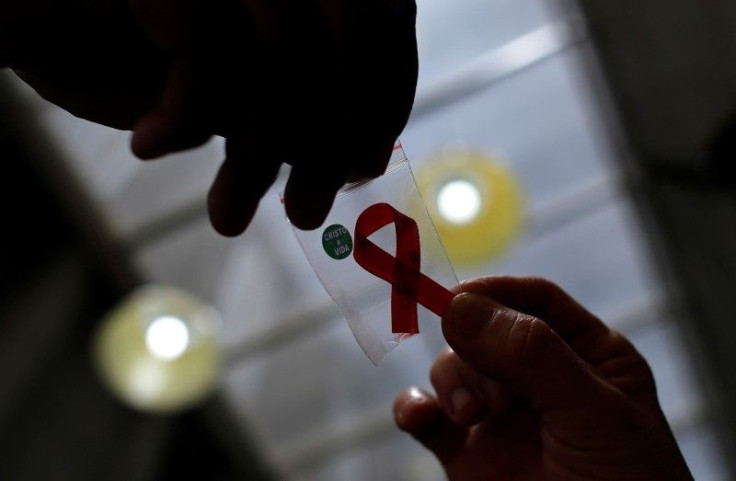Drugs Almost Eliminate Risk Of Sex With HIV Positive Partner, African Study Shows

NAIROBI (Thomson Reuters Foundation) - A daily dose of anti-HIV medication almost eradicates the risk of infection for people in a relationship with an HIV positive partner, a study showed on Tuesday, raising hopes of reducing HIV rates among one of Africa's highest risk groups.
More than 1,000 Kenyan and Ugandan couples took part in the two-year project where the HIV positive partner, two-thirds of whom were women, took antiretroviral therapy (ARV) and the HIV negative one took pre-exposure prophylaxis (PrEP).
"HIV was virtually eliminated in this population," the lead researcher, Jared Baeten of the University of Washington, told the Thomson Reuters Foundation by phone.
"More than 95 percent of the HIV infections that we expected to see, we did not see."
The results were announced on Tuesday at the Durban International AIDS Conference in South Africa, where delegates are discussing the U.N. target of ending AIDS as a global health crisis by 2030.
South Africa has the world's largest population of people living with HIV, accounting for 6.8 million of the 36.7 million infected globally.
Baeten said the study was good news for serodiscordant couples - where one partner is HIV positive and the other HIV negative - who want to have children.
Public health facilities can offer generic versions of PrEP for $100 a year or less, he said.
In the study, the HIV negative person was offered PrEP, a once-a-day pill that works to stop HIV reproducing in the body, until their partner had taken ARVs for six months to reduce their viral load and the risk of transmission.
"Couples really value something like this because it's important for maintaining their relationship, for maintaining their family," Baeten said.
"PrEP offers a really potent, usable, deliverable HIV prevention strategy ... PrEP has to be part of the puzzle for ending HIV."
Free Medication
The use of PrEP among high risk groups, like gay men, is increasing in the United States, leading to a fall in HIV rates in San Francisco, which has a large gay population, Baeten said.
Kenya and South Africa are among seven countries globally to have approved PrEP, Chris Beyrer, president of the International AIDS Society, said in a pre-conference briefing.
"(We are) really going to focus on the affordability and access to PrEP and, we hope, really begin a PrEP access era globally," he said.
Kenya announced on Friday that it will offer free PrEP to high risk groups, such as serodiscordant couples, as well as ARVs to everyone who is diagnosed positive.
Married couples account for 44 percent of new infections in Kenya, which has 1.5 million people living with HIV, government data shows.
The United Nations is trying to increase the number of people who are tested, diagnosed and treated with ARVs to reverse the pandemic.
Less than half of people with HIV globally are on treatment, it says. Many do not know they are infected.
Although the World Health Organization recommends everyone with HIV should be given ARVs as soon as possible after diagnosis, many are reluctant to start medication.
"People want to delay the process," said Elizabeth Bukusi, chief research officer at the Kenya Medical Research Institute's Center for Microbiology Research, which was involved in the study.
"For someone who has no symptoms, there is nothing they are responding to."
PrEP can act as a useful bridge for the HIV negative person to protect themselves as they wait for their partner to start treatment, she said.
(Reporting by Katy Migiro; Editing by xx; Please credit the Thomson Reuters Foundation, the charitable arm of Thomson Reuters, that covers humanitarian news, women’s rights, trafficking, property rights and climate change. Visit http://news.trust.org to see more stories.)



























